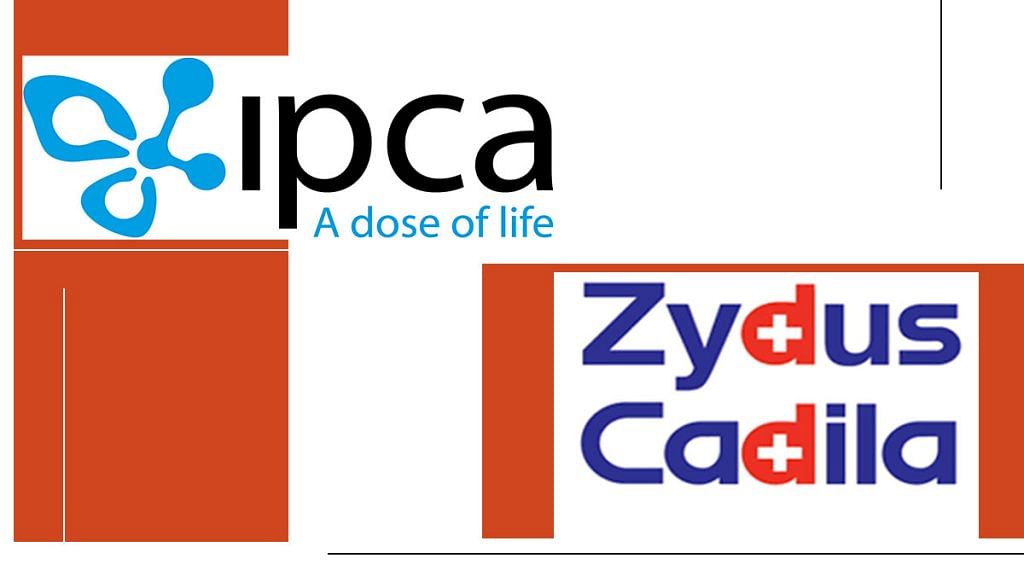New Delhi: Two of India’s top drug makers — Ipca Laboratories and Zydus Cadila — have received orders to produce anti-malarial drug chloroquine for the American market, amid the outbreak of the COVID-19 pandemic.
US President Donald Trump has called chloroquine a potential “game changer” for treating the disease caused by the novel coronavirus SARS-COV-2, and the US Food and Drug Administration (FDA) has partially lifted a three-year-old ‘import alert’ on Ipca’s two plants to import the medicine. Zydus Cadila has also received a “sizeable” order from the US for the decades-old drug.
FDA commissioner Dr Stephen Hahn said the regulator is preparing to test chloroquine in a clinical trial with coronavirus patients.
Trump had, during a White House press briefing on the coronavirus situation Thursday, directed the FDA to “eliminate outdated rules and bureaucracy” to help speed up the pace of testing drugs that could help treat the symptoms of COVID-19.
‘Receiving queries from the world over’
Following discussions on the matter, the FDA, through an e-mail dated 20 March, made an exception by lifting the three-year-old ‘import alert’ on Ipca’s selected products.
Mumbai-based Ipca, in turn, informed the Bombay Stock Exchange and the National Stock Exchange Saturday that the FDA has allowed the import of hydroxychloroquine sulphate and chloroquine phosphate.
The two firms have also started receiving queries from buyers around the globe for chloroquine and the compounds used to manufacturing it, known as APIs (active pharmaceutical ingredients).
“…We are noticing an increase in the emergency demand and enquiries for the chloroquine phosphate and hydroxychloroquine sulphate APIs and its formulations from several countries world over,” Ipca said in its filing to the stock exchanges.
Anticipating increase in demand, Ipca is also gearing up to manufacture and supply these products “meeting the stringent CGMP (FDA’s current good manufacturing practice regulations), quality and regulatory requirements, and thus help mankind in the best possible way in these testing times”.
However, the FDA has also informed that the exception will be re-considered if the shortage implications change.
Meanwhile, an official spokesperson for Zydus Cadila told ThePrint: “Yes, we have received enquiries for the supply of hydroxychloroquine. Our priority at this moment is to ensure consistent supplies, if need arises, and are ramping up our production.”
The spokesperson added that the company can “even quadruple our capacities if need be as we are fully integrated to produce both API and finished dose formulation. We believe that we will be able to cater to the requirements as we are among the few companies in the world who have capabilities to manufacture the drug in large quantities.”
Also read: Plague passport to detention — Epidemic Act was a medical surveillance tool in British India
‘India is self-sufficient’
Chloroquine is widely available in India, and is manufactured by several local companies including Ipca, Zydus Cadila and Alembic Pharmaceutricals.
“With Ipca labs and Zydus as top manufacturers, India can ramp up the production of this drug, anytime. We hold a strong foothold in its production, as it is one of the oldest molecules,” said Dinesh Dua, chairman of the Pharmaceutical Export Promotion Council (Pharmexcil), which functions under the Ministry of Commerce and Industry.
Chloroquine as a potential cure for coronavirus
Chloroquine works by increasing the levels of haem or heme — a substance toxic to the malarial parasite — in the blood. This kills the parasite and stops the infection from spreading.
Biotech investor and doctor Mike Pellini was the first to use chloroquine as a possible cure for coronavirus, while tech entrepreneur Elon Musk also tweeted that chloroquine was “maybe worth considering” as a potential treatment.
According to some earlier studies, chloroquine has strong antiviral effects on the coronavirus infection of primate cells.
One study showed that chloroquine interferes with “terminal glycosylation of the cellular receptor, angiotensin-converting enzyme 2”, which may negatively influence the virus-receptor binding and abrogate the infection.
Also read: These 5 anti-viral drugs and therapies could help treat COVID-19
